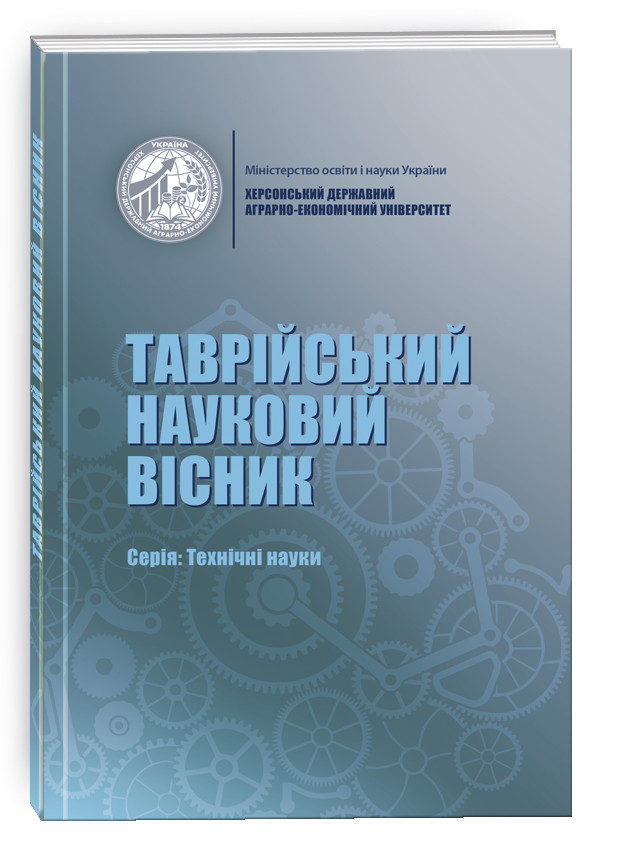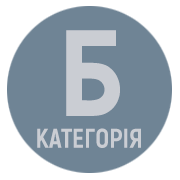ANALYSIS OF THE USE OF INFORMATION TECHNOLOGIES IN THE ORGANIZATION OF THE EDUCATIONAL PROCESS IN THE CONDITIONS OF CRISIS SITUATIONS AND MARITAL STATE IN THE ODESSA NATIONAL MARITIME UNIVERSITY
DOI:
https://doi.org/10.32782/tnv-tech.2024.1.12Keywords:
distance learning, martial law, Information Technology, the Moodle system,success, testing, content, disadvantages, advantagesAbstract
The state of war in Ukraine and the previous coronavirus pandemic led to the need to pay a new attention to distance information technologies of learning and updating requirements in the higher education system. The modern information world requires educational and pedagogical workers to constantly raise their educational and professional level and to look for new approaches to learning. The article presents the results of the analysis of the use of information technologies (IT) in the organization of the educational process during crisis situations and problems of adaptation of students of all specialties to distance learning in these conditions. Advantages and disadvantages of distance education are studied and analyzed, as well as prospects for its development in modern realities are predicted. For distance learning, the basis is the student’s independent work. The organization of such work must be systematic and requires the provision of conditions for the students’ educational activity. These conditions are one of the indicators of the teacher’s work. These include: – external conditions: the place of study, the material and technical base, the relationship between the teacher and the student, the objectivity of the evaluation of the educational process; – internal conditions: positive motivation, abilities, skills, character traits and state of health of participants in the educational process. Based on the research analysis, it is proven that increasing the effectiveness of distance learning is possible only when using the latest information technologies, educational services and distance learning platforms that are used by higher education institutions today: ED-ERA, MOODLE, PADLET, MY CLASS, CLASSTIME, EQUITY MAPS, GOOGLE CLASSROOM, GOOGLE SITES, GOOGLE FORMS. Use of webinars, video clips, audio scripts, forums, charts, online testing, interactive tutorials and whiteboards. The authors, regularly conducting classes online, investigate the problem of students’ adaptation to distance learning conditions using remote conferencing services using Zoom cloud computing and the author’s content development of distance courses in the Moodle course management system, which is a free web application that provides the opportunity create sites for online learning. Data on the success of students in the period from 2020 to 2023 in both technical and humanitarian specialties of the first year of the Odessa National Maritime University, such as 133 «Mechanical engineering», 135 «Shipbuilding», 142 «Energy engineering», 271 «River and sea transport» were analyzed «, 141 «Electric power engineering, electrical engineering and electromechanics», 035 «Philology», 081 «Law», 053 «Psychology», 061 «Journalism» from the disciplines «Information technologies» and «Informatics». According to the results of the study, it was determined that during distance learning, most of the students acquired the skills of working with the provided educational resources, mastered the ability to work independently, and increased their level of knowledge. Based on the above, according to the authors, the biggest drawback is the lack of face-to-face communication with teachers, classmates and work in the classroom. Advantages include access to large electronic volumes of information and the ability to independently regulate the time, pace, volume and quality of learning material.
References
Белозубов А. В. Система дистанційного навчання Moodle. Навчально-методичний посібник / А. В. Белозубов, Д. Г. Миколаїв. ІТМО, 2007. 108 с.
Закон України «Про вищу освіту». URL: https://zakon.rada.gov.ua/laws/show/1556-18#Text (дата звернення: 25.01.2024).
Муранова Н. П. Тенденції розвитку дистанційної освіти в Україні / Муранова Н. П., Волярська О. С. // Дистанційна освіта в Україні: інноваційні, нормативно-правові, педагогічні аспекти: зб. наук. праць матеріалів І Всеукр. наук.-практ. конф., 16 червня 2020 р., м. Київ; Національний авіаційний університет / наук. ред. Н. П. Муранова. Київ : НАУ, 2020. С. 94–96.
Положення про дистанційне навчання : Наказ МОН України № 466 від 25.04.2013 р. URL: https://zakon.rada.gov.ua/laws/show/z0703-13#Text (дата звернення: 21.02.2024).
ZOOM MEETINGS FOR EDUCATION. URL: https://mooc4ua.online/products/1 (дата звернення: 22.02.2024).
Система електронного навчання ВНЗ на базі MOODLE: Методичний посібник / Ю. В. Триус, І. В. Герасименко, В. М. Франчук // За ред. Ю. В. Триуса. Черкаси. 220 с.
Постригач Н. О. Переваги використання змішаного навчання в закладах вищої освіти в умовах воєнного стану в Україні. Освіта України в умовах воєнного стану: управління, цифровізація, євроінтеграційні аспекти: збірник тез доповідей ІV Міжнародної науково-практичної конференції (наукове електронне видання), 25 жовт. 2022 р. Київ : ДНУ «Інститут освітньої аналітики». 2022. С. 28‒31.
URL: https://iea.gov.ua/wp-content/uploads/2022/12/book-ofabstracts_ssi-iea_2022. pdf (дата звернення: 20.06.2023).
Рекомендації щодо організації поточного, семестрового контролю та атестації здобувачів освіти із застосуванням дистанційних технологій. URL: https://mon.gov.ua/ua/npa/shodoorganizaciyi-potochnogo-semestrovogo-kontrolyu-ta-atestaciyizdobuvachivosviti-iz-zastosuvannyam-distancijnih-tehnologij
Герасименко І. В. Використання системи дистанційного навчання на базі Moodle для доуніверситетської підготовки / Герасименко І. В., Садовий А. І., Білан Н. С. // І Всеукраїнська науково-практична 205 конференція «MoodleMoot Ukraine 2013. Теорія і практика використання системи управління навчанням Moodle». (30–31 травня 2013р., Київ): тези доповідей. К.: КНУБА, 2013. С. 14.
Герасименко І. В. Створення навчального курсу в системі електронного навчання на базі Moodle/ Герасименко І. В. // Педагогічний альманах: Зб. наук. пр. / редкол. В. В.Кузьменко (голова) та ін. Херсон: КВНЗ «Херсонська академія неперервної освіти», 2012. Випуск 16. С. 109–115.
Алєксєєв О. М. Теоретичні і методичні основи застосування технологій дистанційного навчання дисциплін професійної і практичної підготовки студентів машинобудівних спеціальностей [Текст]: автореф. дис. д-ра пед. наук : 13.00.10 / Алєксєєв Олександр Миколайович ; Ін-т інформ. технологій і засобів навчання Нац. акад. наук України. К., 2012. 38 с.
Морзе Н. В. Критерії якості електронних навчальних курсів, розроблених на базі платформ дистанційного навчання / Морзе Н. В., Глазунова О. Г. // Інформаційні технології в освіті. Херсон, 2009. № 4. С. 63–75.
Сисоєва С. О., Поясюк Т. Б. Психологія та педагогіка: Підручник для студентів вищих навчальних закладів непедагогічного профілю традиційної та дистанційної форм навчання / С. О. Сисоєва, Поясюк Т. Б. Вид. 2-ге, доп., випр., Кременчук: ПП Щербатих О. В., 2008. 532 с.
Система управління електронними ресурсами. Національний педагогічний університет України імені М. П. Драгоманова // Сайт системи підтримки дистанційного навчання Національного педагогічного університету України імені М. П. Драгоманова. URL: http://www.dn.npu.edu.ua/ (дата звернення: 012.03.2024).
Триус Ю. В. Організація атестації електронних навчальних курсів у ВНЗ засобами системи Moodle / Триус Ю. В. // Перша всеукраїнська науково-практична конференція «MoodleMoot Ukraine 2013. Теорія і практика використання системи управління навчанням Moodle». (30–31 травня 2013 р., Київ): тези доповідей. К.: КНУБА, 2013. С. 68.
Штогрин С. С. Застосування елементів дистанційного навчання при проведенні занять зі студентами денної форми навчання / Штогрин С. С., Роман Б. Є. //Науковий вісник нац.університету біоресурсів і природокористування України. 03/2010. N 146. URL: http://www.nbuv.gov.ua/portal/chem_biol/nvnau_bbe/2010_146/10css. pdf (дата звернення: 25.01.2024).
Чекурін В. Ф. Підхід до формування вимог інформаційної безпеки систем електронного навчання / Чекурін В. Ф., Буднік О. О. // Науково-технічна бібліотека Національного технічного університету «Львівська політехніка». 2011. № 695 URL: http://ena.lp.edu.ua:8080/handle/ntb/10261 (дата звернення: 01.03.2024).
Шуневич Б. І. Розвиток дистанційного навчання у вищій школі країн Європи та Північної Америки: дис. докт. пед. наук: 13.00.01 / Богдан Іванович Шуневич. К., 2008. 509 с.
Connected Moodle LMS with Dropbox and Google Docs. URL: http://www.thelmsapp.com/connect-moodlelms-with-dropbox-and-google-docs (дата звернення: 20.02.2024).
Moodle. Official site. // Moodle.org. URL: http:// https://moodle.org (дата звернення: 21.02.2024).
Tryus Yurij. Innovation education technologies in training of 104IT professionals in the Technical Universities in Ukraine / Yurij Tryus & Tamara Kachala: ICCER 2013, P. 614–621.
Dickey M. D. «Three-Dimensional Virtual Words and Distance Learning: Two Case Studies of Active Words as a Medium for Distance Education», British of Educatioal Technology, Vol. 40, No. 3. 2009. P. 480–495.
Gabriela Hoрpe. Classification and Sustainability Analysis of E-learning Applications. Universitat Hannover, 2003.
Global e-Learning Investment Revieew. URL: https://www.edsurge.com/n/2013-01-23-ibis-capital-releasesreport-on-global-e-learning-industry (дата звернення: 02.03.2024).







